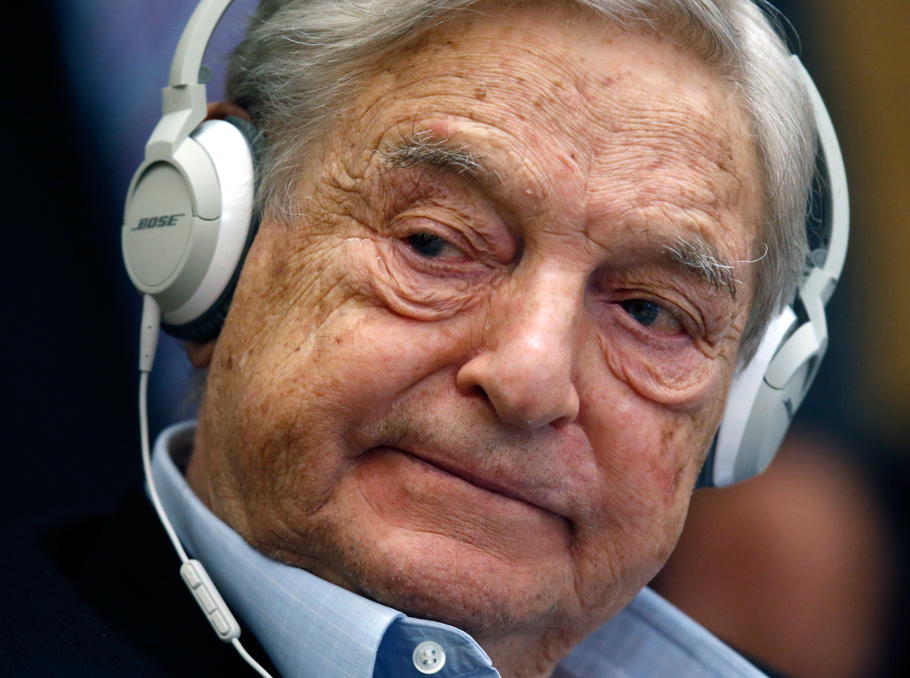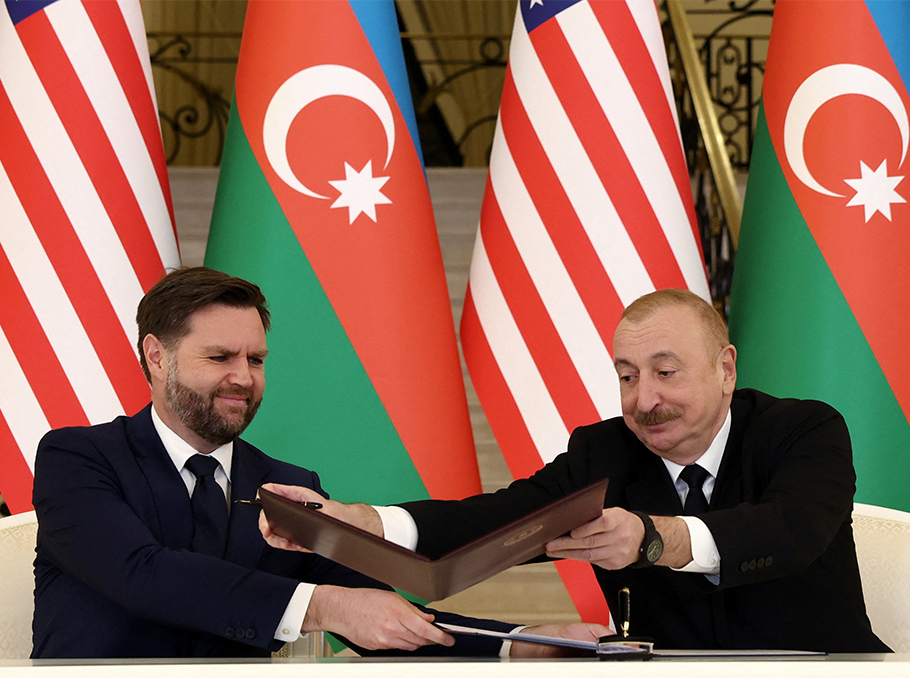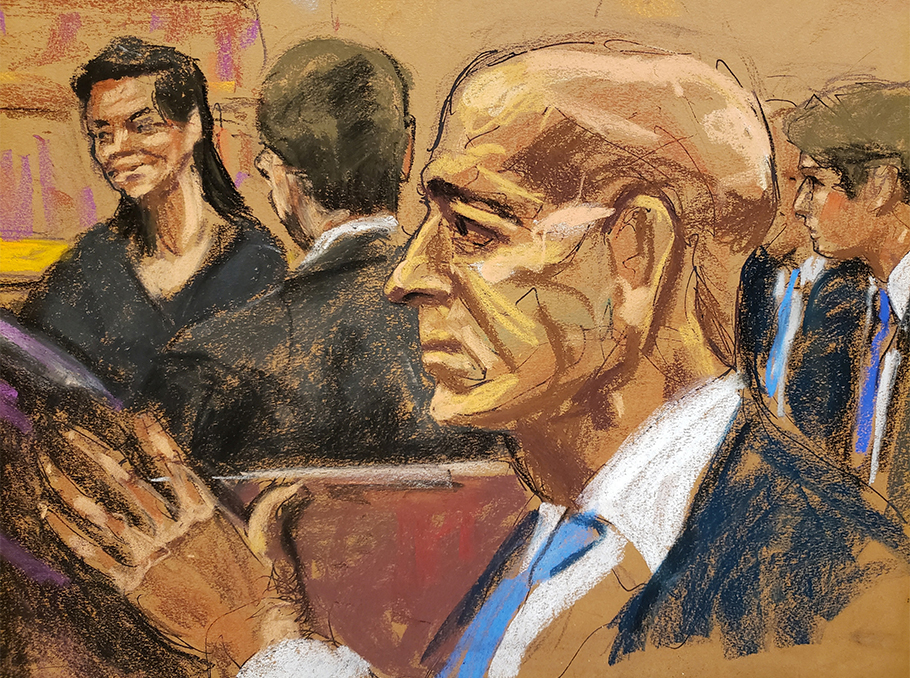On September 4, The Guardian published the investigation of a USD 3bn scheme that Azerbaijan’s ruling elite used to bribe European politicians and launder money. The Azerbaijani authorities denied all allegations and qualified the article as “the order of George Soros and Armenian lobby”. Assistant to the President of Azerbaijan Novruz Mammadov claimed that Soros “lost his mind”. We decided to tell how American financier and philanthropist’s relationship with Azerbaijan developed through the years.
1. Did Soros always criticize Azerbaijan?
Things were quite fine in the beginning. In May of 2003, George Soros arrived in Baku to take part in the “Caspian Oil Windfalls: Who Will Benefit?” forum. He stated during his speech that Azerbaijan can join the ranks of world leaders in oil and gas production.
“I’m not fully familiar with Azerbaijan’s oil strategy, but I can see that your country works to make all oil projects open and transparent for the society,” he said.
2. Why did Soros believe revolution would be a bad scenario for Azerbaijan?
In September of 2005, shortly before the parliamentary elections in Azerbaijan, George Soros wrote an article for Financial Times, “Azerbaijan should seek real democracy by election”. Soros noted in the article that “Azerbaijan should prove to everyone that it can have real democracy without revolution”.
Soros remarked that “certain groups within the opposition and the ruling elite are openly preparing for a fight”. He also added that Azerbaijan didn’t need a fight and the government should begin democratization in the country in that instance.
The financial expert also wrote that Azerbaijani authorities must cancel the ban on foreign funding for local observes at polling stations. “They should let people exercise their right for protest and the external powers in USA and EU must let Azerbaijan know clearly and sternly that no one can steal the election win and get away with it,” Soros stated.
3. Why did the Open Society Institute close in Baku?
On 11 December 2014, the Open Society Institute in Baku closed down.
The Open Society Institute-Assistance Foundation in Azerbaijan operated between 1999 and 2010. In the end of 2010, the Open Society Foundations (OSF) decided to reduce the office’s activity to technical functions, while grant decisions were made in the headquarters.
Nevertheless, local accounts of OSF were frozen within the criminal case against several local and foreign NGOs, and the office’s staffers were called for questioning to the Prosecutor General’s Office.
On 4 December 2014, a week before the office was closed, Head of Administration of Azerbaijani President Ramiz Mehdiyev published the article “The world order of double standards and modern Azerbaijan”, in which he criticized the institutes of civil society that receive foreign aid and accused USA of preparing a “colour revolution” in Azerbaijan. Mehdiyev indicated the OSF among the agencies that fund NGOs engaging in “anti-state activities”.
4. What did Soros and Aliyev discuss in Davos?
In January of 2015, the Open Society Institute issued a statement regarding the intensifying campaign against civil society in Azerbaijan. The statement informed that George Soros met with Ilham Aliyev in Davos and urged him to loosen his stranglehold over civil society and to end his harassment of legally registered charitable organizations.
Azerbaijani Azertag state news agency reported after the meeting:
“President of the Republic of Azerbaijan Ilham Aliyev met with founder of Open Society Institute George Soros in Davos. The parties exchanged opinions regarding the processes of development in Azerbaijan.”
5. Why is the West making “a big mistake”?
In summer of 2016, George Soros stated that the West is making a big mistake by supporting Ilham Aliyev.
"One of the countries that the West treats with too much good humor, unfortunately, is Azerbaijan. The regime in Azerbaijan is an unpleasant, dictatorial one. I recently had the opportunity to speak one on one with the president of the country. He says that he doesn't carry any responsibility for repression in Azerbaijan.
By talking about the accusations levied against political prisoners in the country and what kind of conditions they go to sleep in at night, he demonstrated just how thoroughly familiar he is with the situation. He is a hypocrite. He is responsible for many wrongs in the country and has employed oppressive means. While showcasing the possible oil deposits of his country, he tries to keep the West satisfied. I think the West is making a big mistake in supporting [him],” Soros stated.























